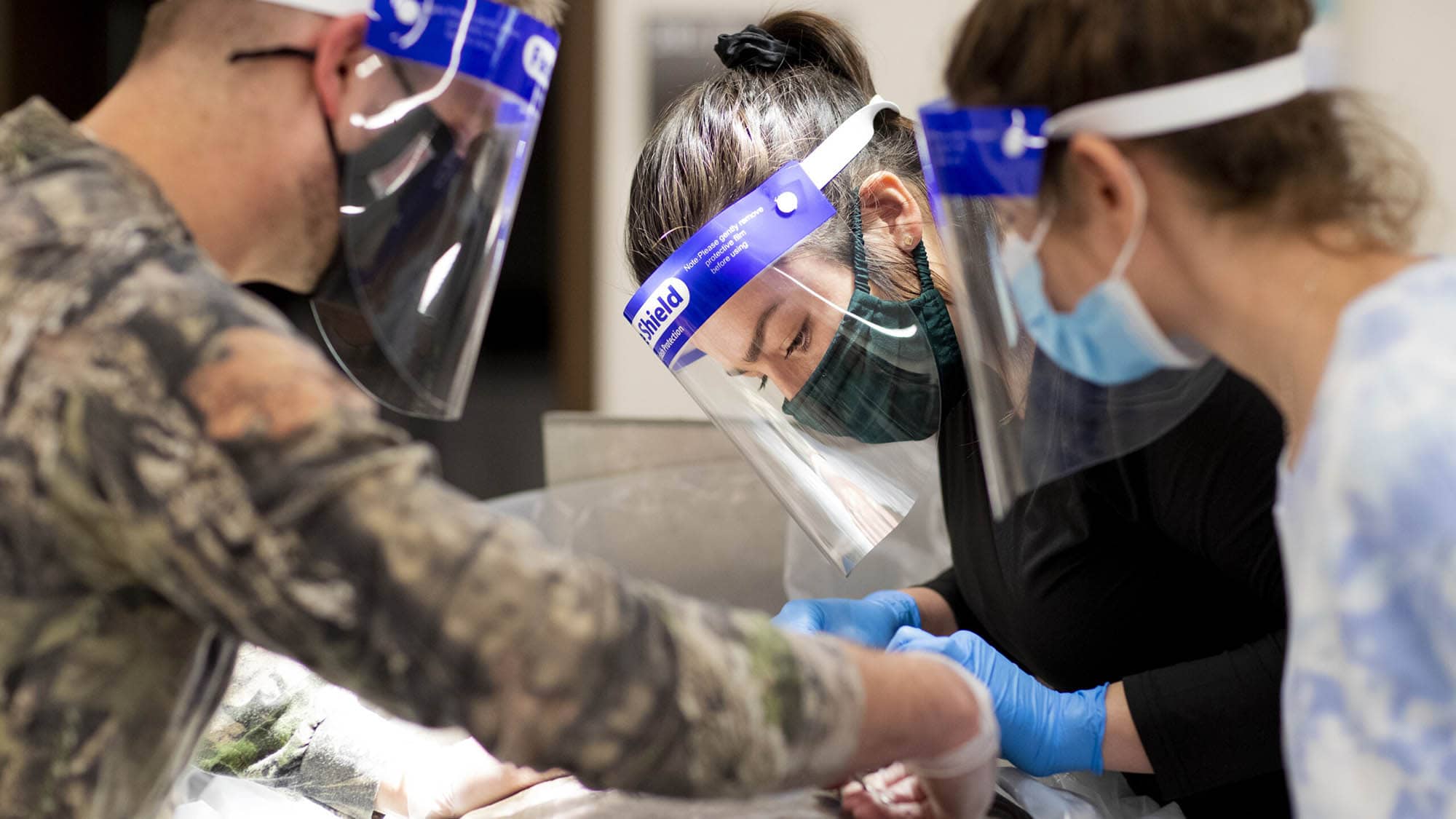Brenau University’s Department of Physician Assistant Studies defines the following Technical Standards, which are the nonacademic requirements that all candidates (applicants and students) in the Master of Science in Physician Assistant Studies program must possess for participation in and completion of the program. All applicants must meet the technical standards as outlined, unless they have special considerations that the university is able to accommodate under the “reasonable accommodations” of the Americans with Disabilities Act. Students wishing to request accommodations for disabilities should contact the Office of Accessibility Services.
The defined Technical Standards are necessary for both the didactic and clinical portions of the PA program. The requirements are as designated below:
Observation
Candidates must have sufficient capacity to observe in the classroom, laboratory, and diagnostic and treatment areas of inpatient, outpatient, emergency room and operating room settings. Sensory skills to observe patients and perform the procedures typically provided by physician assistants in both primary care and medical and/or surgical specialties are required. In any case where a candidate’s ability to observe or acquire information through sensory modalities is compromised, the candidate must demonstrate alternative means and/or abilities to acquire and demonstrate the essential information conveyed in this fashion.
Communication skills
Candidates must demonstrate the ability to communicate effectively in both the academic and health care settings. This includes the ability to effectively communicate with faculty, staff, peers, coworkers, patients and other members of the health care team. Effective communication includes the ability to receive, interpret, utilize and disseminate information via verbal, nonverbal and written communication formats in a manner that is comprehensible by colleagues, patients and laypersons. It is required that candidates communicate in the English language at a level consistent with competent professional practice, both verbally and in writing (manual and computer). Candidates must demonstrate the ability to sensitively and effectively communicate with individuals with disabilities and/or from different social and cultural backgrounds.
Psychomotor skills
Candidates must be able to develop proficiency in motor skills required for accurate diagnostic and therapeutic techniques reasonably required to properly care for all patients. The candidate must demonstrate adequate locomotor ability to allow him/her to physically maneuver to, from and within the classroom, lab and clinical settings in a timely manner. This includes the ability to quickly respond in emergency situations such as preventing a patient’s fall. Students must be able to safely and effectively manipulate or maneuver another person’s body and/or body parts to perform examination and intervention techniques and emergency procedures (e.g., transfers, gait training, positioning, mobilization, exercise, cardiopulmonary resuscitation, use of tools such as stethoscope, blood pressure cuff, ophthalmoscope, otoscope, tongue blades, needles, intravenous equipment, gynecologic speculum, scalpel, suture needle, etc.). Students must be able to perform physical examination and intervention procedures in a manner that is consistent with the Physician Assistant Competencies as defined by the four PA organizations and updated in 2012.
Cognitive/Intellectual skills
Candidates must be able to collect, organize, prioritize, analyze, synthesize and assimilate large amounts of technically detailed and complex information within a limited time frame. This information will be presented in a variety of educational settings, including lectures, small group discussions and individual clinical settings. Candidates must be able to understand and apply principles, theory and research to clinical practice. Candidates should be able to analyze, integrate and apply this information appropriately for problem solving and medical decision-making. Candidates must demonstrate the ability to think critically and problem-solve and to accurately self-assess and reflect on their own performance.
Behavioral/Affective skills
Candidates must possess and demonstrate a level of emotional health and maturity that allows the full use of their intellectual capabilities, the use of good judgment, the ability to effectively handle physically, emotionally, or intellectually stressful situations and complete all responsibilities attendant to the diagnosis and care of patients. This includes the ability to be adaptable, flexible and able to function in changing situations or uncertainty in the academic or clinical environment. Candidates must also demonstrate the ability to develop mature, sensitive and effective relationships with faculty and staff, peers, patients, families, and other members of the health care team. Candidates must also possess integrity, cultural humility, a high level of compassion for others, a motivation to serve and a consciousness of social values. The candidate must demonstrate an ability to positively interact with people from all age and gender groups, cultures, levels of society, ethnic backgrounds and belief systems without bias. The candidate must demonstrate an ability to accept constructive criticism and respond by appropriately modifying behavior.
If a candidate is limited or prevented from performing the required technical standards noted above because of injury, illness or pregnancy, the candidate must request that his/her health care provider send a letter to the chair and program director outlining the candidate’s current limitations and the expected timeframe of limitations. Each individual situation will be evaluated to determine whether the student is able to continue in the clinical/academic portion of the curriculum and whether reasonable accommodations (short term and/or permanent) can be made.
